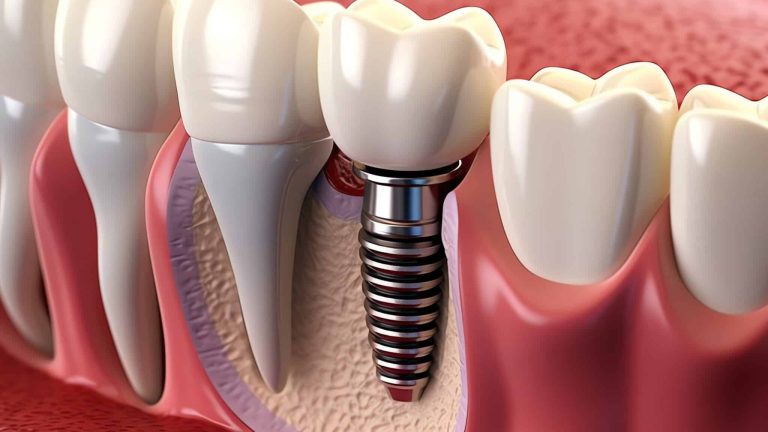Oral health not only affects the appearance of our smile but also plays a crucial role in our overall health. In recent years, numerous studies have demonstrated a significant connection between oral health and the risk of cardiovascular diseases, including serious conditions such as heart attacks, strokes, and atherosclerosis. This article explores how oral health influences the cardiovascular system and what measures can be taken to protect both.
The Mouth as a Gateway to General Health
The mouth is the entry point to the digestive and respiratory systems and hosts a vast number of bacteria, both beneficial and harmful. Without good oral hygiene, these bacteria can multiply and cause local infections such as cavities and gum diseases (periodontitis). Beyond oral issues, these bacteria and associated inflammations can enter the bloodstream and affect other organs, including the heart.
What Are Cardiovascular Diseases?
Cardiovascular diseases are a group of disorders that affect the heart and blood vessels. The most common include:
- Atherosclerosis: Hardening and narrowing of the arteries due to plaque buildup.
- Coronary artery disease: Reduced blood flow to the heart.
- Stroke: Interruption of blood supply to the brain.
- Heart failure: The heart’s inability to pump blood efficiently.
Chronic inflammation and infections are key risk factors for these conditions, which is where oral health comes into play.
The Connection Between Oral Health and the Heart
1. Periodontitis and Cardiovascular Diseases
Periodontitis, an advanced form of gum disease, is a major culprit in this connection. It is characterized by chronic gum inflammation and the destruction of tissues that support the teeth. This inflammation can have a direct impact on the cardiovascular system.
- Systemic Inflammation: Bacteria from the mouth can enter the bloodstream, triggering an inflammatory response throughout the body. This inflammation contributes to plaque development in arteries, increasing the risk of atherosclerosis.
- Endocarditis: Oral bacteria can adhere to damaged heart valves or the heart’s inner lining, causing an infection known as endocarditis.
2. Oral Bacteria in the Bloodstream
Bacteria such as Porphyromonas gingivalis and Streptococcus sanguinis, common in periodontitis, have been found in arteries affected by atherosclerosis. These bacteria can promote clot formation and arterial inflammation.
3. Increased Cardiovascular Risk Factors
Poor oral health is also associated with other cardiovascular risk factors, such as hypertension, high cholesterol, and diabetes. These conditions share inflammatory processes that exacerbate heart problems.
Scientific Evidence of the Connection
Numerous studies have supported the relationship between oral health and cardiovascular diseases:
- Observational Studies
- People with periodontitis have a 20% higher risk of developing cardiovascular diseases compared to those with healthy gums.
- Tooth loss, an indicator of poor oral health, has also been linked to an increased risk of heart attack and stroke.
- Inflammatory Markers
- People with gum diseases show elevated levels of inflammatory proteins like C-reactive protein (CRP), a marker associated with cardiovascular risk.
- Dental Interventions
- Treatments for periodontitis have been shown to reduce systemic inflammation levels, which could lower the risk of heart diseases.
How to Protect Oral and Cardiovascular Health
Given the clear connection between oral health and the heart, adopting healthy habits can protect both. Here are some key recommendations:
1. Maintain Good Oral Hygiene
- Brush your teeth at least twice a day with fluoride toothpaste.
- Floss daily to remove food particles and plaque between teeth.
- Consider using antimicrobial mouthwashes to reduce oral bacteria.
2. Schedule Regular Dental Visits
- Schedule professional dental cleanings every six months to prevent gum diseases.
- Consult your dentist if you notice any signs of gum inflammation or bleeding.
3. Manage Cardiovascular Risk Factors
- Maintain a balanced diet rich in fruits, vegetables, and healthy fats.
- Engage in regular physical activity.
- Avoid tobacco and limit alcohol consumption.
4. Manage Chronic Conditions
- If you have diabetes, hypertension, or high cholesterol, ensure you follow the treatment prescribed by your doctor.
- Inform your dentist about any medical conditions or medications you are taking.
Oral Health Warning Signs
Paying attention to early symptoms of oral issues can help prevent major complications:
- Swollen, red, or bleeding gums while brushing.
- Persistent bad breath.
- Loose or mobile teeth.
- Pain or sensitivity in the gums.
These symptoms may indicate gingivitis or periodontitis, which require immediate attention.
Who Is at Greater Risk?
Some individuals are at a higher risk of developing related oral and cardiovascular problems:
- Smokers: Tobacco increases the risk of gum diseases and heart problems.
- People with Diabetes: Uncontrolled diabetes can worsen inflammation in gums and arteries.
- Patients with Preexisting Heart Conditions: They should be particularly careful with their oral health to avoid infections like endocarditis.
The Role of Health Professionals
Dentists and doctors can work together to address the connection between oral and cardiovascular health:
- Cross Evaluations: Dentists can identify cardiovascular risk signs, such as severe inflammation, and refer the patient to a doctor.
- Preventive Education: Professionals can educate patients about the importance of oral health in preventing systemic diseases.
Conclusion
The relationship between oral health and cardiovascular diseases highlights the importance of caring for our mouth as an integral part of our overall well-being. Maintaining good oral hygiene, attending regular dental visits, and managing cardiovascular risk factors are essential steps to protect both your smile and your heart. By taking preventive measures, we not only improve our quality of life but also reduce the risk of severe complications that could affect our longevity.




